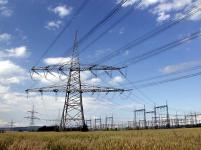 The Albanian government annulled €60 million worth of debts and unpaid bills of the state-owned electricity distribution company, OSSH, on Friday.
The Albanian government annulled €60 million worth of debts and unpaid bills of the state-owned electricity distribution company, OSSH, on Friday.
The decision has been slammed by the opposition as “stupid” and corrupt, because it will decrease by more then 50 per cent the real price of OSSH, which is currently under privatisation procedures.
Long term debts owed by OSSH to the World Bank and European Investment Bank for the total amount of 5.16 billion lek, (€38 million) were removed from OSSH’s balance sheet and transferred to another state-owned power company, KESH.
The decision also annulled unpaid bills totaling 1 billion lek, (€7.7 million) that OSSH owed to KESH and the operator of the electricity transmission system, another publicly owned company.
OSSH was privatised in September by CEZ, the Czech electricity giant for €102 million; however the final contract for the transfer of the company in private hands has not been signed yet.
Andis Harasani, the former General Director of KESH, now an MP for the opposition Socialist Party, attacked decision as illegal and corrupt. “Debts are being transferred to KESH, while assets which were created by such debts were transferred to OSSH,” Harasani said in a press conference.
According to the International Monetary Fund, IMF, and the World Bank the privatization OSSH is considered a high priority for Albania, because currently only 60 per cent of electricity distributed in the country is paid back with the government covering the shortfall directly or indirectly.
But the IMF has been critical of the way the negotiation process between CEZ and the Ministry of Economy and Trade is being carried out. “There was a tacit acceptance of a nontransparent subsidization of the privatization through non-cost covering wholesale supply prices,” said the fund in its last mission report on Albania, in Febdruary 2009.
“These would imply financial shortfalls of some 0.7 percent of GDP for KESH—which will remain responsible for power generation and wholesale supply—that the budget would have to cover,” the report adds.
 Eurasia Press & News
Eurasia Press & News
